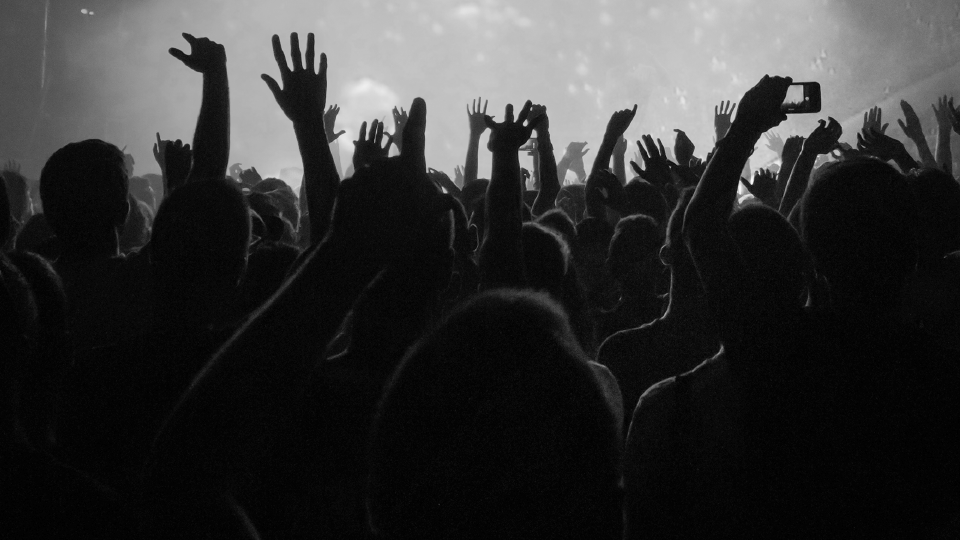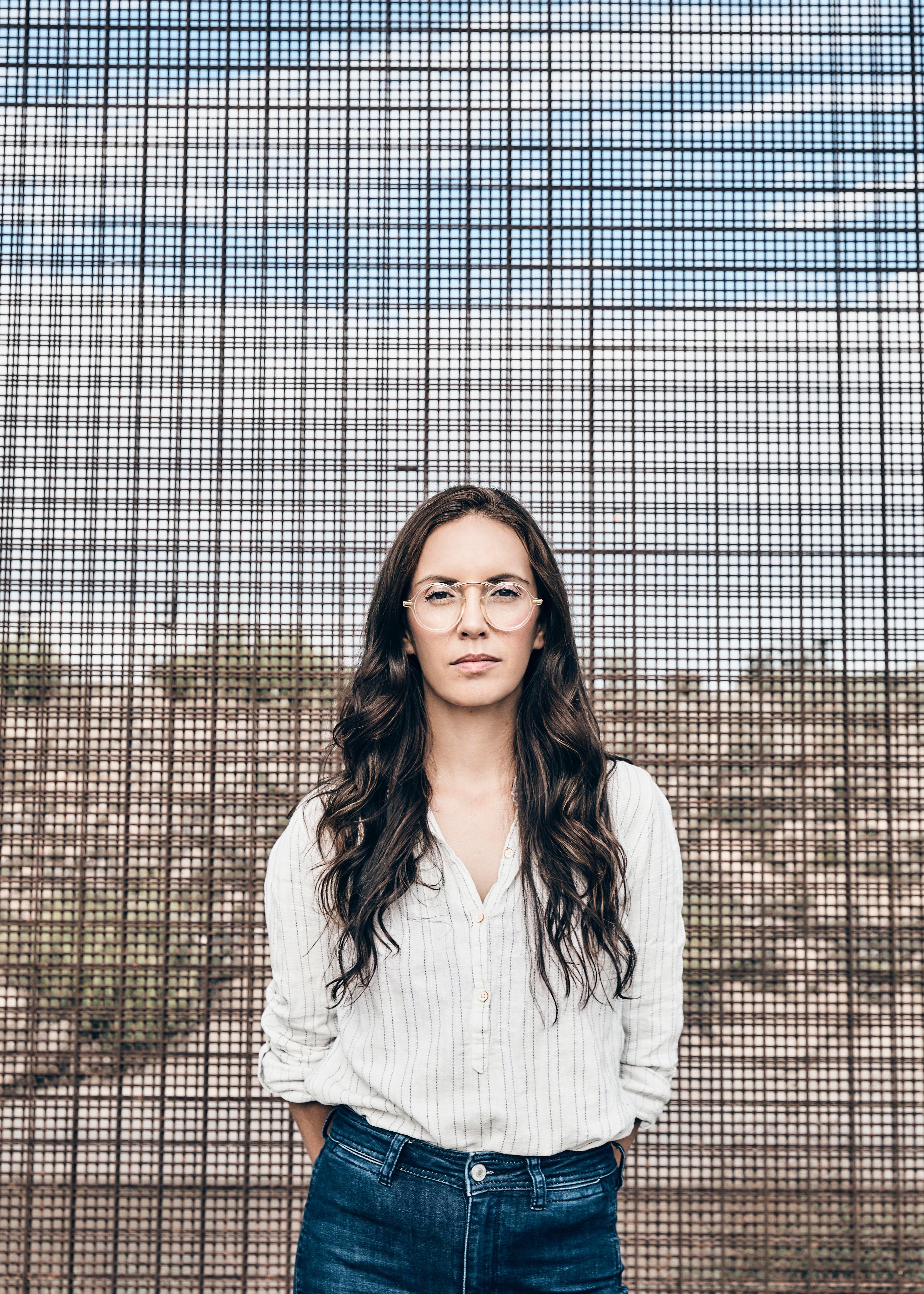Right before the COVID-19 pandemic hit, a platform to amplify the creative work of BIPOC women, LGBTQ+ people, and other underrepresented groups was just getting off the ground.
In the wake of several events in 2020 that forced the US to reckon with various forms of inequality, the platform, called The Meteor, seemed even more necessary than ever. Now, it’s continuing to ensure that people who have been otherwise marginalized receive an opportunity to have their voices heard.
Built from a place of community, The Meteor offers a space for creators to share their stories across mediums such as journalism and photography, or through live events. The work highlighted on the platform also includes more information for how readers can get involved to support the issue being addressed.
One of the leaders behind The Meteor is film director, activist, author, and artist Paola Mendoza, whose most recent work includes the art installation Immigrants Are Essential honoring undocumented immigrants who died from COVID-19. Mendoza, also the co-founder and artistic director of the original Women’s March, is a key member of the over 30-person collective of journalists, artists, and activists behind the platform.
Global Citizen spoke with Mendoza about the importance of representation in storytelling, how everyday people can uplift vulnerable and underrepresented groups, and the intersection between LGBTQ+ and immigration rights.
Global Citizen: How did you end up choosing art and storytelling as your form of activism and way to promote social change?
Mendoza: When we change the culture of how we view someone or an issue, very often policy follows behind that. The way in which I'm able to best use my abilities as a storyteller is to promote a vision and tell the story of the world that I want to see. I hope that if we're able to imagine it and see it and feel it, then it can become reality.

What led you to join The Meteor?
Growing up as a child, I didn't see people or storylines that talked about my experience as an immigrant, as a young girl of color, [with] a mother who was working class, poor. As I got older, I saw that the stories of women like my mother weren’t being told. And if they were in any sort of film, TV, book, they were relegated to the maids, to the side, unimportant characters in a plot that involved mostly white men and women. I was very confused by that because my mother obviously was central to my own personal story. But beyond that, I thought that my mother's story was a story that should be celebrated. I thought her story and the stories of women like her should be known and should be applauded and should have a light shone on the heroic things that they did for themselves, for their children, and ultimately for this country.
Each person that comes into The Meteor space has this idea that the stories of women, non-binary people of various races and backgrounds, and able-bodied and disabled bodies haven't been told in the ways that they should, which are in truth and dignity, with love, with courage, with respect. They matter because we are here. We are living them. They are part of us, and they are central to the progress of this country. We want to tell them in ways that they haven’t been told before.
We are unapologetically progressive in our ideologies and how we see the world. We are also unapologetically feminists. Some of us identify as feminists, some of us don't. And personally I self-identify as a feminist, but also the expansive form of what it means to be a feminist. We know that the history of feminism in this country has not been inclusive and or fair to women of color and Black women. And so the feminism that I am bringing to the table that I want, that I try and live and abide by every day, is that of the feminism of my mother when she might not [have] even be able to form the word that she was a feminist at that time, but the way in which she lived her life was that of making sure that herself, her children, her community had equality and access and were respected and had the opportunity to thrive.
What are some of the most impactful stories that you've been able to tell on The Meteor that might not have been able to run on other platforms?
[We ran a] virtual summit called 21 For ’21, and it was 21 visions for a feminist future. What was really exciting about those stories and those visions that we told is that it ran the gamut, from Shantell Martin talking about why it's important for her as an artist and as a feminist to be able to create a new font and the importance of that in her personal journey. But more importantly than her personal journey is the impact it could have for young people with dyslexia, for the art world.
I'm from Colombia [and] there's currently been an uprising in Colombia for the past month. It's been very violent. Over 40 people have been murdered at the hands of the police and the military throughout the uprising. We were able to have a presidential candidate from Colombia come and speak and give her vision of a future specifically for Colombia, but ultimately for a progressive, more equitable world. Her name is Francia Marquez and she is a presidential candidate that is at the forefront of the resistance in Colombia at this moment in time.
You mentioned that a lot of Americans aren't even aware of what is happening in Colombia. What can we do to show solidarity with the protestors?
There's a petition that was just launched [on May 27], that is going both to the Biden administration and to the Duque administration in Colombia, that's calling and demanding for allowing protesters to protest peacefully, but also asking the United States government to stop funding the police.
#ImmigrantsAreEssential; A COVID Memorial, pays tribute to undocumented immigrants who have died of COVID-19.
— Paola Mendoza (@paolamendoza) June 2, 2021
If you’re in DC, you can visit the memorial at @theroostdc now through June 8th. Anyone, anywhere can still view the installation virtually at https://t.co/wfr4zXjQ9F. pic.twitter.com/4uRxzByCAu
Being aware and reading up on the stories, [is] the very least we can do being here in the United States and knowing that our taxpayer money is going into paying for the firing squad, the tear gas, the trucks, the equipment, the intelligence. Knowing where our money is going and being responsible for that is important to just be educated on the issue. And being loud, putting pressure on the Biden administration to take a stance against what's happening in Colombia and so that they can put pressure on the Duque administration to end the violence on the streets.
Since it’s Pride Month, what stories and issues would you like to see brought to the forefront of the LGBTQ+ rights conversation this year?
Pride Month also coincides with Immigrant Heritage Month. So I want us to talk about our LGBTQ+ brothers and sisters who are currently stuck in detention centers, currently stuck in MPP [Migrant Protection Protocols], unable to apply for asylum because of Title 42 which was implemented by Trump and has continued under the Biden administration. I want to talk about a pathway to citizenship for DACA recipients, for our essential workers who allowed us to live through this pandemic in safety and many of whom died undocumented. What is it that we owe them and their families, both those that are LGBTQ+ and those that are not? So I think it's very important to uplift the stories of immigrants. And I think during the month of Pride, even more, [it’s] important to uplift those that are immigrants, undocumented, and also LGBT+.
This interview has been edited and condensed for clarity and length.
